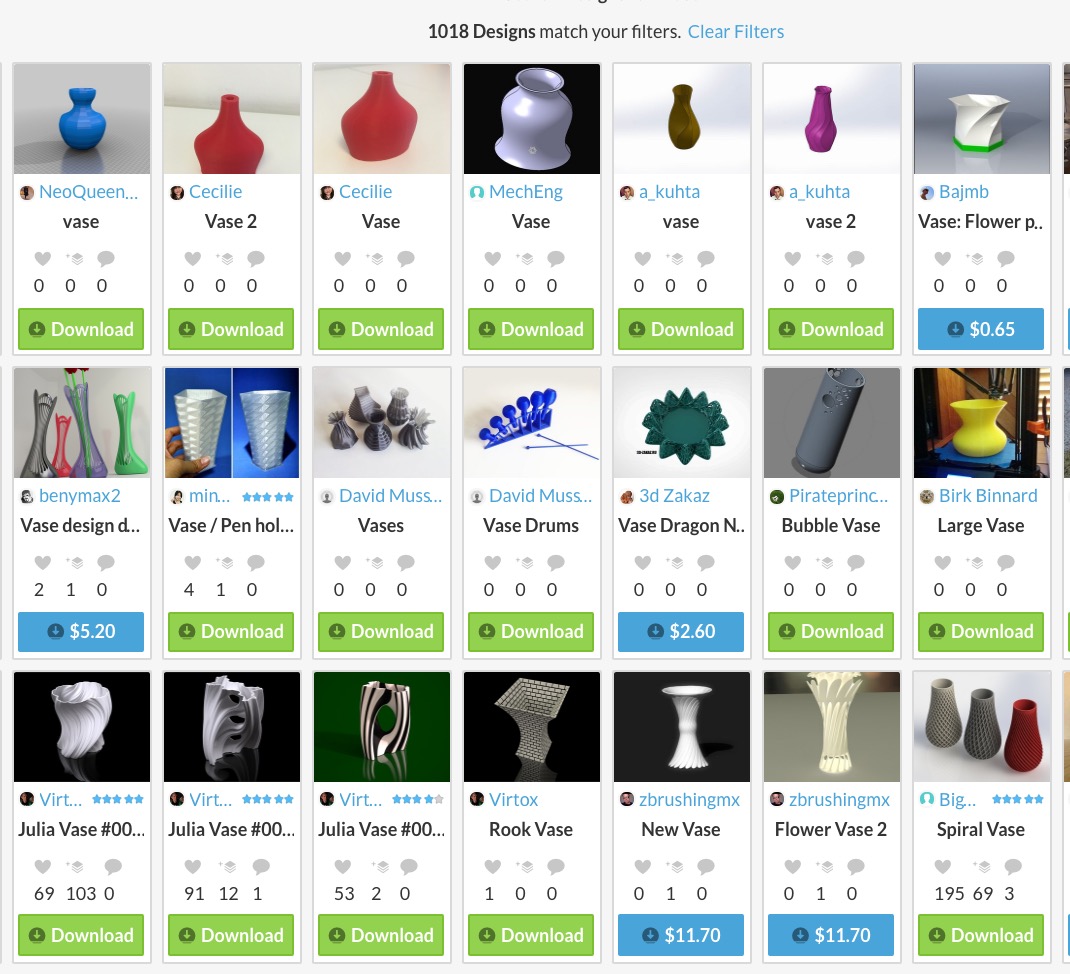
There’s an insidious problem growing in the 3D model marketplaces: search. And it sucks.
With the success of desktop 3D printing a number of online repositories appeared, each offering 3D content suitable for printing. These sites provided the means for 3D printer operators to avoid having to design their own 3D models using CAD software.
And that’s a good thing, too, as the number of competent CAD developers is a mere fraction of those using the devices. These repositories power the use of 3D printers, at least until machine owners become competent in 3D design.
However, things have become a bit out of control. Today we find the several main printable 3D model sites offering literally millions of possible 3D models, even without considering the 3D models that offer some limited forms of customization.
Once an annoyance, the sheer size of these repositories poses huge difficulties in finding desired objects. Consider the following search results for “vase”:
- Thingiverse: 3,872 results
- YouMagine: 205
- CGTrader: Over 7,800
- Cults: ~200
- GrabCAD: over 600
- MyMiniFactory: 346
- Pinshape: 1,018
Just in these results, we have almost 15,000 results for “vase”. Which one is the right one?
How could you possibly find out? Would you literally scroll through all of them? That’s eminently impractical.
But let’s look further into these results: why were these particular items returned in the search results? It is simply because the uploader or content manager “tagged” the item with the keyword “vase”.
And this is the problem: when you search for a 3D model, you’re actually searching the tags (and possibly descriptive text) and not the shape itself. Thus the success of your search depends utterly on how competently the content manager sets the tags.
But then, would the content manager use the same words to describe the object as you would? Perhaps not, especially if the parties are from different cultures or languages.
What if a site used a more liberal use of a tag than other sites? Perhaps this is why the totals are high for some sites, yet small (but still hundreds) for others?
There’s no standards for tagging between sites, thus you get inconsistent results.
One excellent meta-search site, Yobi3D, offers the ability to actually inspect the 3D model in a 3D viewer as it returns results from multiple repositories. However, like scrolling through hundreds of result pages, it is also impractical to look at endless 3D views.
The problem is that there is no universally accepted way to easily describe a formal 3D object (emphasis on “easy”). The same problem exists with image search, which is only now being addressed by the search engines. Google, for example, can do a kind of “reverse image search” to find similar images. But as far as I know, no such thing exists for 3D models.
Even if it did, it would still require you to have a rough 3D model of what you want, which is unlikely in most cases.
Back to the question: how do we solve this search dilemma?
I don’t know the answer. Do you?

